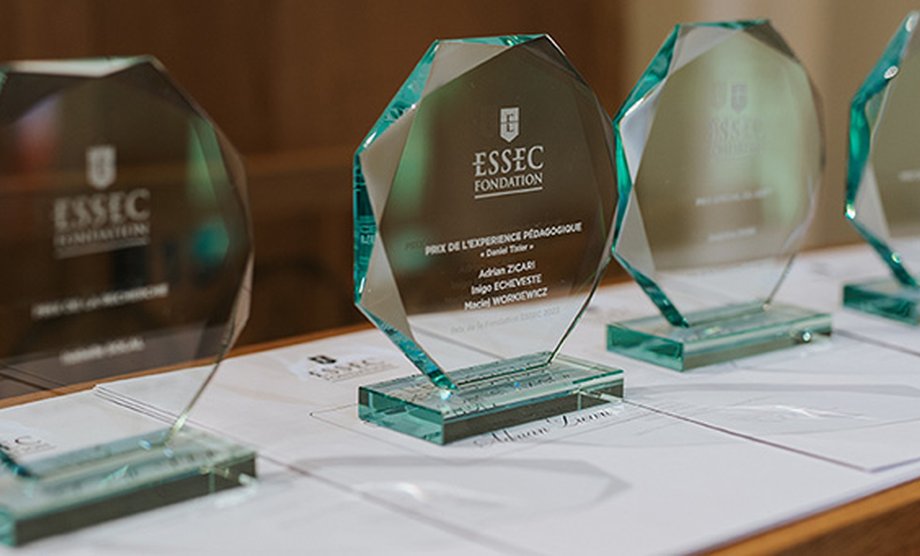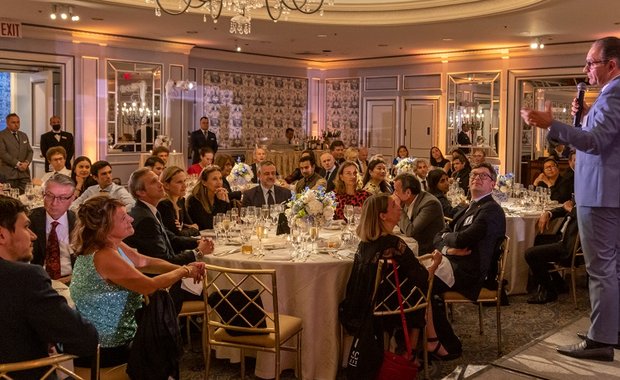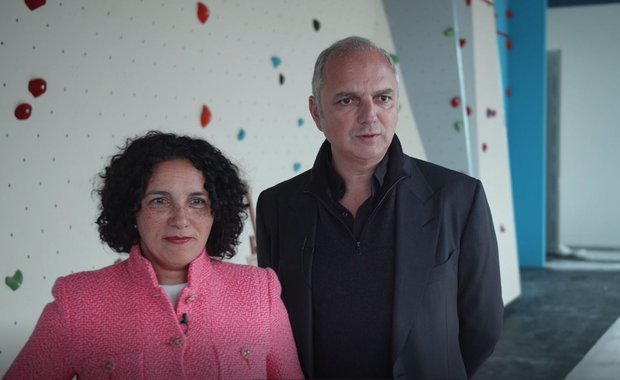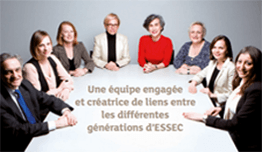The 2023 event brought together professors, who were honoured for the excellence of their teaching and research, scholarship students and student entrepreneurs, illustrating three of the areas supported by the Foundation: academic excellence, social scholarships and responsible entrepreneurship.
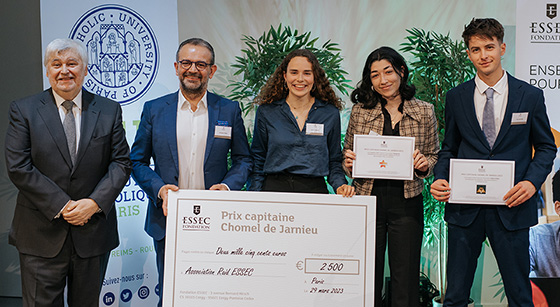
The Foundation also awarded the Captain Chomel de Jarnieu Prize for a project run by a student association working to help people in difficulty.
This year, the Raid ESSEC association won the third edition of this prize with its "Raidreveillon" project, a charity race.
"Raidreveillon" is a committed charity race to support the Le Rocher des Mureaux association, which works to tackle the social crisis in local neighbourhoods and support young people and their families.
Awards for academic excellence
Thanks to the generosity of its donors, the ESSEC Foundation has rewarded 7 professors this year:
• The winner in the 'Tenured Professors' category (favourite professor) is
Le lauréat de la catégorie « Professeurs permanents » (professeur préféré) est Jan Lepoutre.
The winner in the 'Lecturers' category is Valérie Thobois.
• Jury's special award
The winner is Delphine Dion, chosen for her teaching in a variety of programmes and her commitment to the institution.
• Daniel Tixier educational experience award
This year's award was presented to Adrian Zicari, Maciek Workiewicz and Inigo Echeveste for their leadership of an original and innovative educational experience: "Capstone Business Simulator (CAPSIM) - The Mind of the Strategist".
• Research award
This year it was awarded to Isabelle Solal, for her article entitled "Does Investor Gender Matter for the Success of Female Entrepreneurs? Gender Homophily and the Stigma of Incompetence in Entrepreneurial Finance", published in Organization Science, co-authored with Kaisa Snell.
• The white project award
The white project prize is awarded to a research or teaching project that stands out for its rigour, innovation, originality and high potential for academic and/or societal impact.
The winner is Guillaume Lecué, for his project "GRAPH4HEALTH - From healthcare accessibility to health outcomes: A statistical and machine learning approach to large-scale graphs".
• PScience & society award
Awarded for the first time, this prize recognises initiatives by researchers to bring academic knowledge closer to citizens and society.
This year, the prize was awarded to Arthur Gautier, Gaétane Lefèvre Marchand and Anne Monier of the Philanthropy Chair for their podcast "La Philanthropie en question(s)".
Social scholarships to support equal opportunities
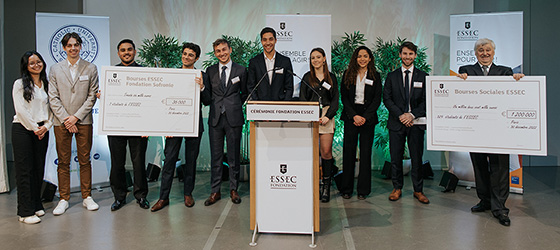
Scholarship students were also honoured and officially received their social scholarship during the evening. ESSEC wants its excellent training to be accessible to all talented students, regardless of their financial resources.
The ESSEC Foundation supports ESSEC in its commitment to equal opportunities and diversity. Through the generosity of its donors, it finances 100% of the social scholarships for students enrolled in the Grande Ecole and Global BBA programmes.
Scholarships to support student entrepreneurs
During the evening, 5 entrepreneurial students from ESSEC were awarded scholarships in recognition of their entrepreneurial ambitions and their quest for a positive environmental or societal impact.
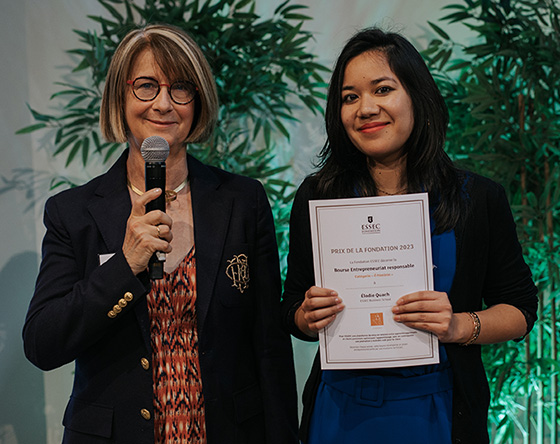
• Sustainability category
- Léa Egger (E24), a brand of refillable, reusable make-up made from upcycled products.
- Robin Bruneau (BBA 22 & M22) and Corentin Dejean (BBA 18), Co-founders of Ecklo, a company offering a reusable packaging solution for pallets as part of a circular economy approach.
• “Ô Féminin”
Elodie Quach (M22), Founder of Youdy, a platform that puts apprentices/learners in touch with potential customers, optimising learning in return for a lower-cost service for the customer.
• « Ambition Entrepreneur » category
Sarah Gomey (E23), Co-founder of Bycelium, a SaaS solution enabling researchers to publish papers more quickly and produce more robust and reproducible knowledge.
Co-founder of Bycelium, a SaaS solution enabling researchers to publish papers more quickly and produce more robust and reproducible knowledge.

